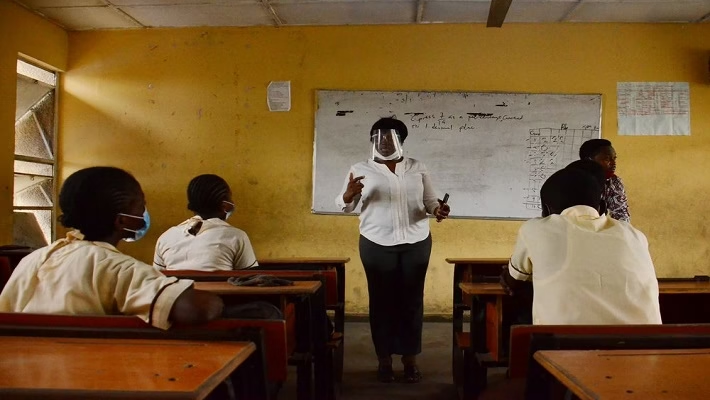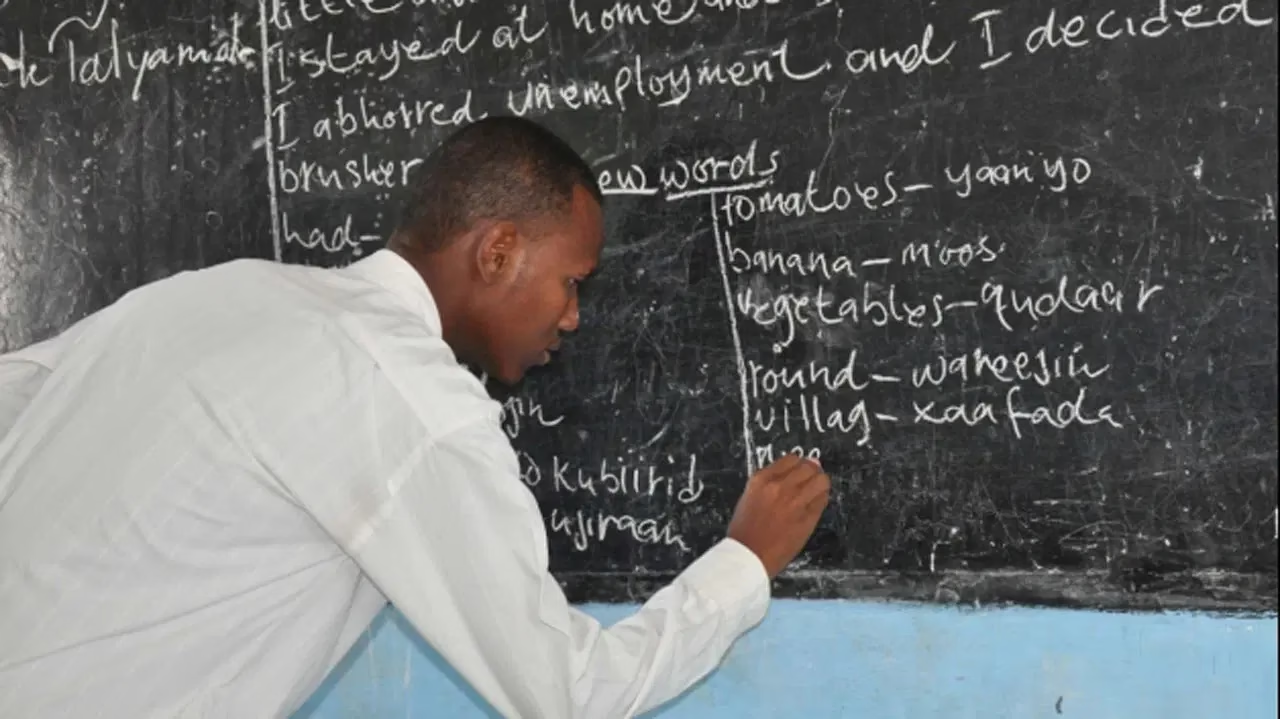Teachers demand 65-year retirement age enforcement and improved welfare on World Teachers’ Day, urging federal and state governments to act on promises
Teachers demand 65-year retirement age implementation as Nigeria marked the 2025 World Teachers’ Day, with renewed calls for better welfare, infrastructure, and full enforcement of policies aimed at improving the profession.
Also read: Dangote Refinery faces backlash over fuel price row
At ceremonies held nationwide on Sunday, teachers’ unions and stakeholders expressed deep concern over the failure of 16 states to implement the 65-year retirement age, more than three years after it was signed into law in 2022 by former President Muhammadu Buhari.
The National Union of Teachers (NUT) disclosed that states such as Lagos, Oyo, Ogun, Abia, Kaduna, and Rivers are among those yet to domesticate or implement the policy.
According to the Harmonised Retirement Age for Teachers in Nigeria Act, teachers should retire at 65 years or after 40 years of service, whichever comes first.
Despite this legal backing, implementation has lagged — a situation that educators say continues to undermine morale and stability in the teaching workforce.
In Ilorin, Kwara State NUT Chairman, Comrade Yusuf Agboola, decried the government’s delay in adopting the 65/40 policy and demanded that outstanding rural allowances and welfare entitlements be urgently addressed.
“The future of education in our state remains uncertain if teachers are not properly motivated and supported,” he warned.
In Oyo State, however, teachers acknowledged progress, praising Governor Seyi Makinde for approving career progression policies, including promotion to Grade Level 16 and the appointment of a teacher as Chairperson of the State Post-Primary Teaching Service Commission.
NUT National President, Comrade Audu Amba, used the occasion to urge concrete government investment in teachers and the broader education sector.
“Without deliberate investment in teachers, the future of education is at risk,” he said in a national message, calling for improved funding and a more conducive learning environment.
In Sokoto, NUT Chairman Murtala Mohammed praised the recent increase in teachers’ minimum wage from ₦18,000 to ₦70,000, describing it as a game-changer for morale, but said much remained to be done in other parts of the country.
While some governors used the day to appreciate teachers, others highlighted recent steps to improve welfare.
Governor Dapo Abiodun of Ogun State pledged continued support and praised teachers for their contributions to nation-building.
Governor Monday Okpebholo of Edo described teachers as “nation builders and architects of the future,” promising modern training tools and better working conditions.
Governor Biodun Oyebanji of Ekiti confirmed the upward review of science teachers’ allowances and rewarded outstanding educators with financial incentives.
He also clarified that the 65-year policy was approved “for able and willing teachers.”
Gombe and Katsina State Governors reaffirmed their commitment to infrastructure improvements and digital learning tools to support teaching and professional development.
The National Association of Proprietors of Private Schools (Ogbomoso North chapter) called on government to ease the tax burden on private institutions, arguing that the current 25% annual tax increase stifles reinvestment in staff and school facilities.
A university lecturer, Dr Vincent Paul of Nasarawa State University, stressed the importance of basic workplace needs like private office space for teachers, commending their resilience despite challenging conditions.
Also read: Uche Nnaji admits forging university degree
He visited his former teacher, Mrs Augustina Abraham, to personally thank her — a gesture he said symbolised the lasting impact of quality educators.


